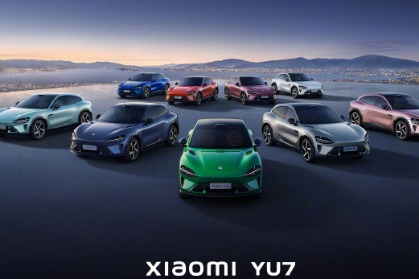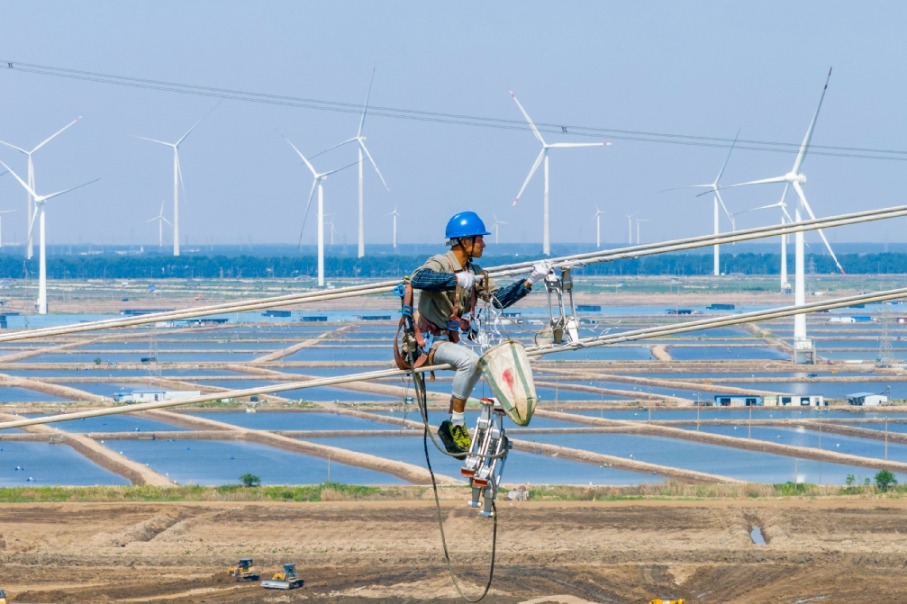Comment: Change for the better


More frequent high-level exchanges signal the desire of China and the EU to strengthen relations, but irritants, such as curbs on high-tech exports, remain.
A review of this year, the 35th year of relations between China and the European Union, demonstrates that both Brussels and Beijing attach great importance to the further development of bilateral exchanges.
At the end of April, European Commission President Jose Manuel Barroso visited Beijing with a group of commissioners. Half a year later, Premier Wen Jiabao visited Brussels with a big Chinese government delegation.
Strategic dialogue has been upgraded from vice-foreign minister level to the current level, which involves Vice-President of the Commission and High Representative of the Union for Foreign Affairs and Security Policy, Catherine Ashton, and Chinese State Councilor for foreign affairs, Dai Bingguo. In addition, the 3rd High Level Economic and Trade Dialogue (HED) took place in Beijing on Dec 20 and 21.
The frequency and high level of the exchanges indicate the desire on both sides to strengthen the partnership between Beijing and Brussels.
Economic and trade cooperation, which continues to grow, serves as the cornerstone of bilateral ties. The EU has been the largest trading partner of China for six years, and China has grown to be the EU's second largest export market.
However, a protective tendency against Chinese products has emerged - the first 10 months of this year witnessed the initiation of 10 trade remedy cases by the EU against China - as China continues to maintain a large trade surplus with the EU. Beijing has tried to convince the EU that the reason for the trade surplus is the EU's restriction on exports of high-tech products.
Although the EU previously ignored this argument, it now seems that Brussels is seriously considering relaxing curbs on high-tech market. At the recent HED in Beijing, the EU agreed to hold a meeting with China about trade in high-tech products.
Although this is obviously a positive step toward more balanced trade between the EU and China, it is not yet clear when the EU will loosen its restrictions on high-tech exports.
China and the EU have had different fortunes in the wake of the global financial crisis. While China was one of the first countries to recover from the global economic downturn, the EU is still in serious trouble, in particular, the euro is in a very vulnerable position due to the huge debts of several EU countries.
China has expressed its willingness to back European sovereign debt on several occasions. At the recent HED, Vice-Premier Wang Qishan pledged that China would support European stabilization efforts if necessary and during his visit to Athens in October, Premier Wen assured Greece that Beijing would purchase its bonds and increase investment in the country; one month later, when President Hu Jintao visited Portugal, he promised to take concrete measures to help the country.
China's support would not only help protect its own investment in the EU, it would also increase confidence in the euro.
However, China still has concerns. The arms embargo, introduced by the EU in 1989, is still valid; Market Economy Status (MES) has not yet been granted to China - even though some EU countries have proposed lifting the arms embargo and granting MES to China, the 27 member states remain divided on the issues.
The new year will be important for the EU's external relations. The roles of President of the European Council and the European High Representative for Foreign Affairs and Security Policy were established under the Lisbon Treaty and after about one year's preparation, the European External Action Service (EEAS) was launched in December. Yet, despite the ambitions of the EU, how important the role of the EEAS will be and how it will function will only become clear in the coming years.
Inside the EU, there is a general impression that the EU should adjust and develop a more suitable policy toward China. A long list of cooperative programs between Beijing and Brussels is expected for the coming years, aiming at increasing mutual understanding and mutual respect.
The author is InBev-Baillet Latour Chair of EU-China Relations at the College of Europe.
Today's Top News
- Xi calls for upholding of ethnic unity
- Abuse of 'security' stifles innovation, collaboration
- Beijing warns countries against signing trade deals with US that hurt Chinese interests
- AI shouldn't undermine humanity's progress
- Xi urges villagers in Xizang to uphold ethnic solidarity
- Digital tax sparks breakdown in US-Canada trade talks































